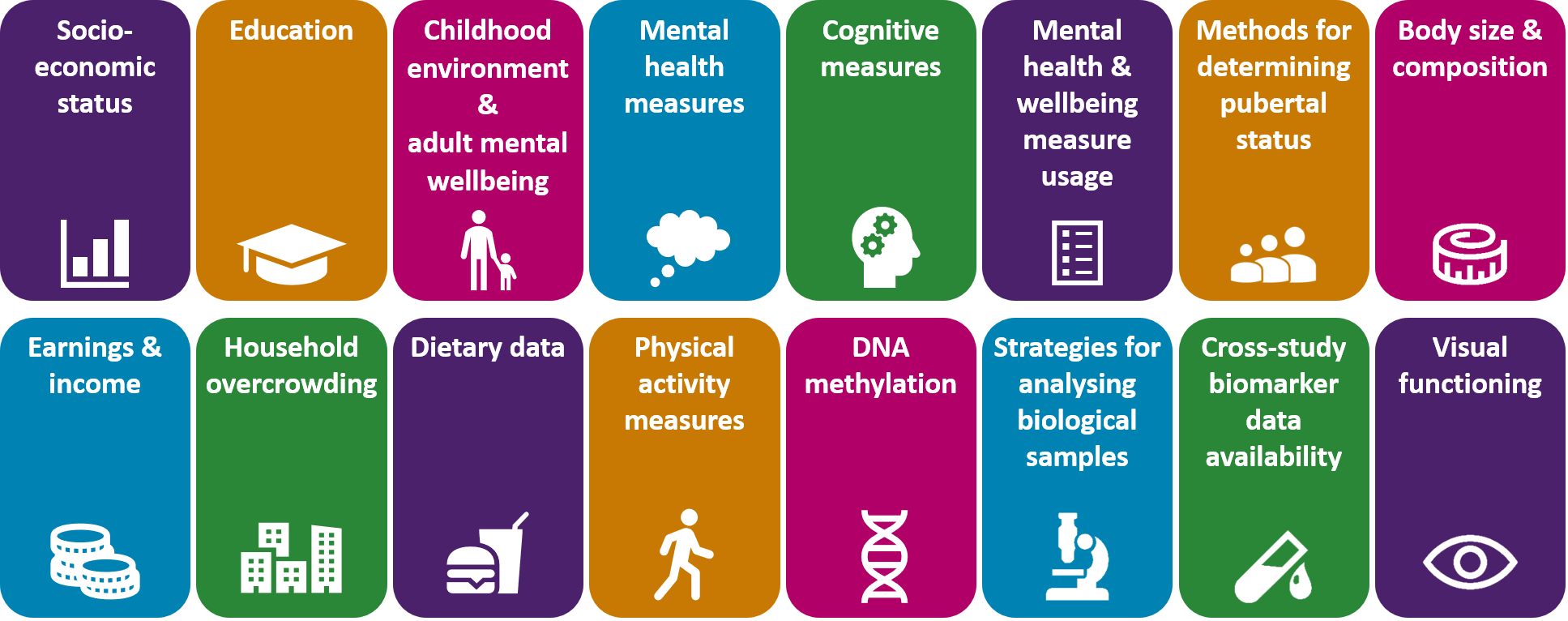The UK has an extensive history of longitudinal research, with the first nationally representative birth cohort commencing in 1946. This has since been followed by many additional cohort and panel studies at the national and regional level.
Eight of these studies are part of the CLOSER consortium, alongside the UK Data Service and the British Library. Our interdisciplinary consortium collectively aims to maximise the use, value and impact of longitudinal studies and the research they generate. As part of achieving these aims, CLOSER coordinates a diverse set of harmonisation projects that seek to document the availability and comparability of longitudinal cross-study data, as well as generating new harmonised data resources covering different social and biomedical research domains. This work has been made possible through support from the UK’s Economic and Social Research Council (ESRC) and Medical Research Council (MRC).
To date, we have coordinated 16 harmonisation work packages, covering the following topic areas:

For each topic, our work packages have sought to evaluate the similarities and differences in the measurement protocols and instruments used across the CLOSER partner studies as well as within the studies over time. In some instances, such as with the DNA methylation work package, studies from outside the consortium have also been included. To date, half of our work packages have documented these efforts in the form of open access resource reports that are in the process of being disseminated via the main CLOSER website. The remaining 8 work packages have identified a sufficient level of equivalence in the data to proceed with the derivation of harmonised variables, and these are being made available for wider research usage through deposits to the UK Data Service repository. These deposits are accompanied by detailed user guides as well as code files that are intended, where the source data are also available to researchers, to aid reproducibility. These can help ensure the harmonised variables are maximally adaptable to new research questions, as the code files can enable researchers to fully understand and amend decisions made during the original harmonisation process, as well as to more easily apply similar harmonisation processes to datafiles from other sweeps or from new studies.
To further facilitate the identification and usage of the data available across our partner studies, we are also building a metadata enhancement/search platform that is designed to be a unified point of access for discovering information about the questions used and variables collected across the studies. We also build capacity and best practice in harmonisation through networking and training events and we have developed an online training platform, the CLOSER Learning Hub, to introduce students and early career researchers to the principles and possibilities of longitudinal cross-study research. In addition, we advocate for increased support for new harmonisation efforts through promotion and engagement work with policy makers and funding organisations.
As a consortium, collaborative working is the basis of all our research efforts and we very much welcome additional opportunities to share learning on harmonisation and to engage with more partners in exploring new avenues of longitudinal cross-study research.
For further information about CLOSER, check out our website, see our data resource profile in the International Journal of Epidemiology or get in touch with us directly (closer@ucl.ac.uk).
Dara O’Neill is the research theme lead for harmonisation at CLOSER, based at University College London. Rebecca Hardy is a Professor of Epidemiology and Medical Statistics at University College London and the Director of CLOSER.
Please note this article was originally published by the Cross-National Studies: Interdisciplinary Research and Training Programme’s (CONSIRT) newsletter, Harmonization: Newsletter on Survey Data Harmonization in the Social Sciences.
CONSIRT is based jointly at Ohio State University and the Polish Academy of Sciences.
